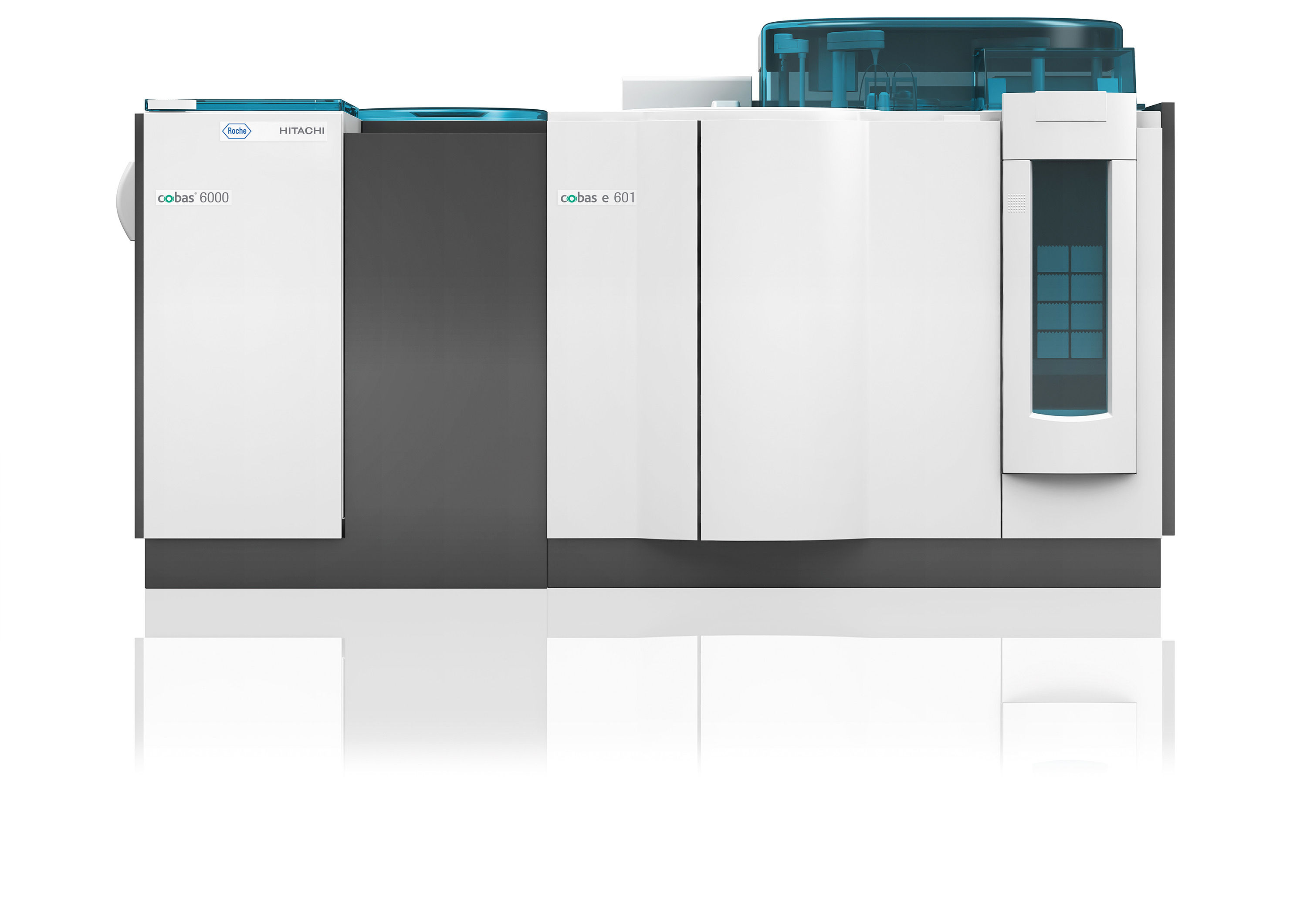Roche Diagnostics U.S. Media Relations
Cindy Zinkovich
1 (317) 931-8463
The assays are easily scalable to meet the imminent demand for Alzheimer’s disease modifying therapies as they become available.
BASEL, December 8, 2022 - Roche (SIX: RO, ROG; OTCQX: RHHBY) today announced that its Elecsys® beta-Amyloid (1-42) CSF II (Abeta42) and Elecsys® Phospho-Tau (181P) CSF (pTau181) assays have received U.S. Food and Drug Administration (FDA) 510(k) clearance. The Elecsys AD CSF Abeta42 and pTau181 assays (used as a pTau181/Abeta42 ratio) measure two biomarkers that are hallmarks of Alzheimer’s pathology, beta-amyloid and tau proteins, in adults ages 55 and older being evaluated for the disease.
Currently, the diagnosis of Alzheimer’s is a diagnosis of exclusion, largely based on various cognitive tests, routine laboratory tests and structural imaging (MRI or CT scan). Clinical criteria are currently limited and lead to an accurate diagnosis in only 70%-80% of cases.1 To increase diagnosis accuracy, an amyloid positron emission tomography (PET) scan, that measures the build-up of abnormal beta-amyloid protein in the brain, can be used as an adjunct to these evaluations.2 However, the high cost, limited availability and exposure to radioactivity limit its use. The Elecsys AD CSF assays achieve 90% concordance with the Amyloid PET scan imaging3 and have the potential to provide a more affordable and accessible routine option to confirm the presence of amyloid in the brain. They also offer detection of multiple biomarkers from one draw, with no radiation and potential to detect Alzheimer’s pathology in early stages of disease.4
An early and accurate diagnosis allows those facing Alzheimer's, under the guidance of their physician, an opportunity to take steps to preserve cognitive function, make better care plans and get involved in clinical research that may lead to new treatments. Research suggests that disease modifying therapies are likely to be most beneficial when used in the earliest stages of the disease. Therefore, early and accurate diagnosis will be even more essential to ensure that people with Alzheimer’s receive the right treatment, at the right time. Due to the large installed base of instruments, the Elecsys AD CSF assays are easily scalable to meet the imminent demand that these therapies will generate as they become available.
Roche’s Elecsys AD CSF assays are already registered in 45 countries worldwide, including those accepting the CE Mark. In July, Roche also announced that the FDA granted Breakthrough Device Designation to its Elecsys® Amyloid Plasma Panel, an innovative, minimally invasive and easily accessible solution that enables the measurement of Alzheimer’s biomarkers from a blood sample. These assays are still in development but once they are available, they could be used to streamline patients toward confirmation of amyloid pathology using the Elecsys AD CSF assays.

Alzheimer's disease is characterized by the abnormal accumulation in the brain of amyloid beta and tau proteins, which are biomarkers of Alzheimer’s hallmark pathology. The Elecsys beta-Amyloid (1-42) CSF II and Elecsys Phospho‑Tau (181P) CSF assays accurately and reliably measure the beta‑Amyloid (1‑42) and Phospho‑Tau (181P) concentrations in cerebrospinal fluid (CSF) in adult subjects, ages 55 and older, being evaluated for Alzheimer's disease and other causes of cognitive impairment to generate a pTau181/Abeta42 ratio value. As changes in these biomarkers levels occur at early stages of the disease, the assay can detect Alzheimer’s pathology in earlier stages of disease (e.g., mild cognitive impairment). Elecsys pTau181 and Elecsys Abeta42 assays are both traceable to reference materials ensuring accuracy of the pTau181/Abeta42 ratio results.3
The ratio of these biomarkers (pTau181/Abeta42) is consistent with a negative beta‑Amyloid PET scan if the result is less than or equal to the cutoff (negative), and with a positive beta‑Amyloid PET scan if the result is above the ratio cutoff (positive).
Abeta42 and pTau181 assays are intended to be used in addition to other clinical diagnostic evaluations to determine whether a person has Alzheimer’s. A positive pTau181/Abeta42 ratio result in CSF does not establish a diagnosis of Alzheimer's disease.
With more than two decades of scientific research in Alzheimer’s, Roche is working towards a day when we can detect the disease early and stop its progression to preserve what makes people who they are. Today, the company’s Alzheimer’s portfolio spans investigational medicines for different targets, types and stages of the disease. It also includes approved and investigational tools, including digital and blood-based tests and cerebrospinal fluid (CSF) assays, aiming to more effectively detect, diagnose and monitor the disease. Yet the global challenges of Alzheimer’s go well beyond the capabilities of science, and making a meaningful impact requires collaboration both within the Alzheimer’s community and outside of healthcare. We will continue to work together with numerous partners with the hope we can transform millions of lives.
Founded in 1896 in Basel, Switzerland, as one of the first industrial manufacturers of branded medicines, Roche has grown into the world’s largest biotechnology company and the global leader in in-vitro diagnostics. The company pursues scientific excellence to discover and develop medicines and diagnostics for improving and saving the lives of people around the world. We are a pioneer in personalized healthcare and want to further transform how healthcare is delivered to have an even greater impact. To provide the best care for each person we partner with many stakeholders and combine our strengths in Diagnostics and Pharma with data insights from the clinical practice.
In recognizing our endeavor to pursue a long-term perspective in all we do, Roche has been named one of the most sustainable companies in the pharmaceuticals industry by the Dow Jones Sustainability Indices for the thirteenth consecutive year. This distinction also reflects our efforts to improve access to healthcare together with local partners in every country we work.
Genentech, in the United States, is a wholly owned member of the Roche Group. Roche is the majority shareholder in Chugai Pharmaceutical, Japan.
For more information, please visit www.roche.com.
All trademarks used or mentioned in this release are protected by law.
References
Cindy Zinkovich
1 (317) 931-8463